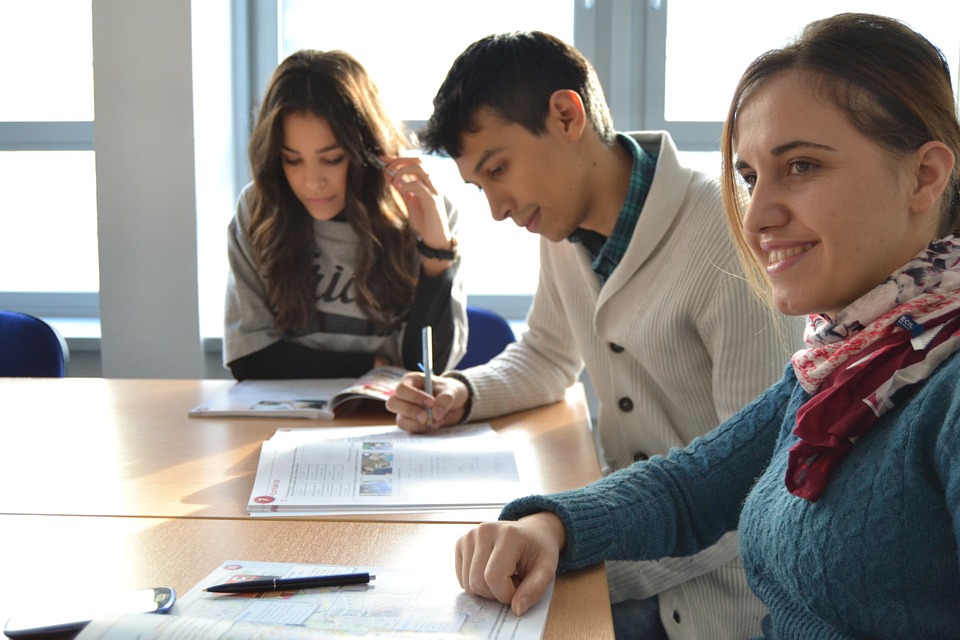Awards
The GSCL offers awards for doctoral theses and MA/BA theses.
GSCL Award for best Doctoral Thesis in the memory of Wolfgang Hoeppner
The German Society for Computational Linguistics (GSCL) is to award a prize for an excellent doctoral thesis in the field of language technology / computational linguistics once every two years. The thesis must have been submitted in one of the disciplines or its subdisciplines.
Competition 2022
Candidates should have defended their work (viva voce), but not earlier than May 2020. Prior nomination for other awards is permitted. Theses from all German-speaking countries are acceptable (Austria, Germany and Switzerland) as well as from any other country, as long as the topic is focused on the German language.
The following documentation must be submitted in the PDF format:
- a copy of the thesis
- at least one recommendation (generally by the first referee)
- summary of the doctoral thesis (max. 10 pages)
- list of the candidate’s publications
- Curriculum Vitae
Work that marks relevant progress and can be expected to significantly advance language technology / computational linguistics will be considered for the award. The jury members have been nominated by the scientific advisory board of the GSCL.
The successful candidate will be awarded € 1000. Submission deadline for 2022: May 31, 2022, 23:59 CEST. All documents must be submitted by this date, either in German or English, per Email to the speaker of the GSCL Advisory Board schneider@ids-mannheim.de. The prize will be awarded at the KONVENS 2022 conference. It is possible to increase the number of awardees, and the prize money can be shared. Recourse to the courts is ruled out.

Awardees since 2014
2020
-
Seid Muhie Yimam (University of Hamburg): Adaptive Approaches to Natural Language Processing in Annotation and Application
-
Referee: Chris Biemann
-
Thomas Proisl (FAU Erlangen-Nürnberg): The cooccurrence of linguistic structures
-
Referee: Stefan Evert
2018
- Annemarie Friedrich (Universität des Saarlandes): States, events, and generics: computational modeling of situation entity types
- Referees: Manfred Pinkal, Alexis Palmer
2016
- Martin Riedl (Technische Universität Darmstadt): Unsupervised Methods for Learning and Using Semantics of Natural Language
- Referees: Chris Biemann, Anders Søgaard
2014
- Nadir Durrani (Stuttgart): A Joint Translation Model with Integrated Reordering
- Honorable Mention: Annelen Brunner (Würzburg): Automatische Erkennung von Redewiedergabe in literarischen Texten
GSCL Award for best Student Thesis
Every two years, GSCL awards two prizes worth € 400 each for the best student undergraduate thesis and for the best master's thesis in the field of language technology and computational linguistics.
The nomination will be done by a supervisor. The lecturers at universities and technical colleges are called upon to encourage their best graduates of the past two years to submit a summary of their thesis. Based on a blind reviewing process, members of the GSCL Board select the best papers in a pre-selection process. These will then be presented by the authors at the KONVENS meeting in the final round. Travel costs and conference fees are borne by the GSCL.
The next selection round takes place in the summer of 2021. Candidates should have completed their work not earlier than April 2019. Theses from all German-speaking countries are acceptable (Austria, Germany and Switzerland) as well as from any other country, as long as the topic is focused on the German language.
The following documentation must be submitted in the PDF Format until 15.6.2021 to gscl-preis@gscl.org:
- Summary of the work (German or English) with a maximum of five pages plus references and images. The authorship must not be evident from the abstract.
- Name and email address of the author and supervisor, university, degree achieved. The grading should not be given.
- Brief statement / letter of recommendation from the supervisor or reviewer.

Award winners since 2001:
2021
- Master: Marie Bexte (Duisburg): Combined Analysis of Image and Text Using Visio-Linguistic Neural Models - A Case Study on Robustness Within an Educational Scoring Task
- Bachelor: Yannic Bracke (Potsdam): Automatic text classification with imbalanced data - Building a frame classifier from a corpus of editorials
2019
- Master: Isabel Meraner (Zürich): Grasping the Nettle: Neural Entity Recognition for Scientific and Vernacular Plant Names
- Bachelor: Rami Aly (Hamburg): Hierarchical writing genre classification with neural networks
2017
- Master: Mathias Müller (Zürich): Treatment of Markup in Statistical Machine Translation
- Bachelor: Katarina Ragna Krüger (Potsdam): Assessing the Dimensions of Factuality in Biomedical Text
2015
- Master: Edo Collins (Tübingen): Classifying German Noun-Noun Compounds Using Stacked Denoising Autoencoders
- Bachelor: Glorianna Jagfeld (Stuttgart): Towards a Better Semantic Role Labeling of Complex Predicates
2013
- Marcel Bollmann (Bochum): Automatic Normalization for Linguistic Annotation of Historical Language Data
2011
- Christian M. Meyer (Darmstadt): Combining Answers from Heterogenous Web Documents for Question Answering
2009
- Christian Hardmeier (Basel): Using Linguistic Annotations in Statistical Machine Translation of Film Subtitles
- Pierre Lison (Saarbrücken): Robust Processing of Spoken Dialogue
2007
- Jette Klein-Berning (Heidelberg): Multilingual Information Retrieval with Latent Semantic Indexing
2005
- Hans-Friedrich Witschel (Leipzig): Text, Words, Morphes: Possibilities of Automatic Terminology Extraction
2003
- David Reitter (Potsdam): Rhetorical Analysis with Rich-Feature Support Vector Models
2001
- Georg Rehm (Osnabrück): Preliminary Considerations for the Automatic Summary of German Texts Using an SGML and DSSSL-Based Representation of RST Relations